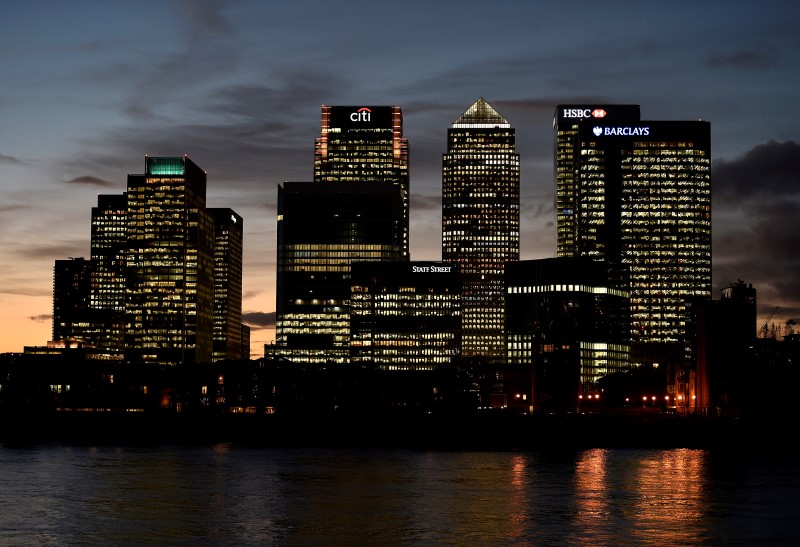LONDON (Reuters) - Britain's biggest companies are beset by doubts about the future after last month's vote to leave the European Union and have slashed their investment plans, according to a survey on Monday that bodes poorly for the economy.
Some 82 percent of chief financial officers from FTSE 350 and large private companies expect to cut capital spending in the next year, the biggest proportion on record and up from 34 percent in the first quarter, accountancy firm Deloitte said.
Its survey is one of the first clear signs the vote to leave the EU has battered business confidence, and corroborates the Bank of England's view that the economy is set to weaken soon.
While the British central bank unexpectedly left interest rates on hold last week, its chief economist Andy Haldane said a "material easing" of policy would be needed next month to help cushion the expected slowdown.
The Deloitte survey was conducted between June 28 and July 11, after the referendum and just before Theresa May emerged as Britain's new prime minister.
Almost all the CFOs surveyed said the level of uncertainty facing their businesses is above normal.
"Perceptions of uncertainty have soared to levels last associated with the euro crisis five years ago," said Ian Stewart, Deloitte's chief economist.
"The spike in uncertainty has had a toxic effect on business sentiment, with optimism dropping to the lowest level since our survey started in 2007 -- lower, even, than in the wake of the failure of Lehman in late 2008."
More than two-thirds of CFOs in the Deloitte survey said they believed leaving the EU will hurt the British business environment in the long-term.
The BoE's Haldane said last week he detected no sense of "slash and burn" around company boardrooms, but a strong sense of "trim and singe".
In the next three years, 58 percent of CFOs surveyed said they expected capital spending to be "somewhat" or "significantly" lower.
Seventy-three percent of respondents said they were less optimistic about their company's financial prospects, a record high, and 83 percent expected to slow the pace of hiring.
"CFOs do not seem to be waiting for growth to slow before adjusting direction. There has been a marked shift to more defensive balance sheet strategies in the wake of the referendum," said Stewart.
The Deloitte survey adds to signs of a tumble in business and consumer confidence since the EU vote, after warnings that Brexit-induced uncertainty and a sharp fall in sterling would leave many firms struggling to meet full-year profit targets.
A first concrete gauge of business activity will be published on Friday, when Markit publishes a one-off preview version of its monthly purchasing managers' index (PMI).

A separate survey from the British Retail Consortium showed the number of shoppers heading to high streets and retail centres fell at the fastest pace in more than two years in June, with the weeks around the referendum particularly hard hit.